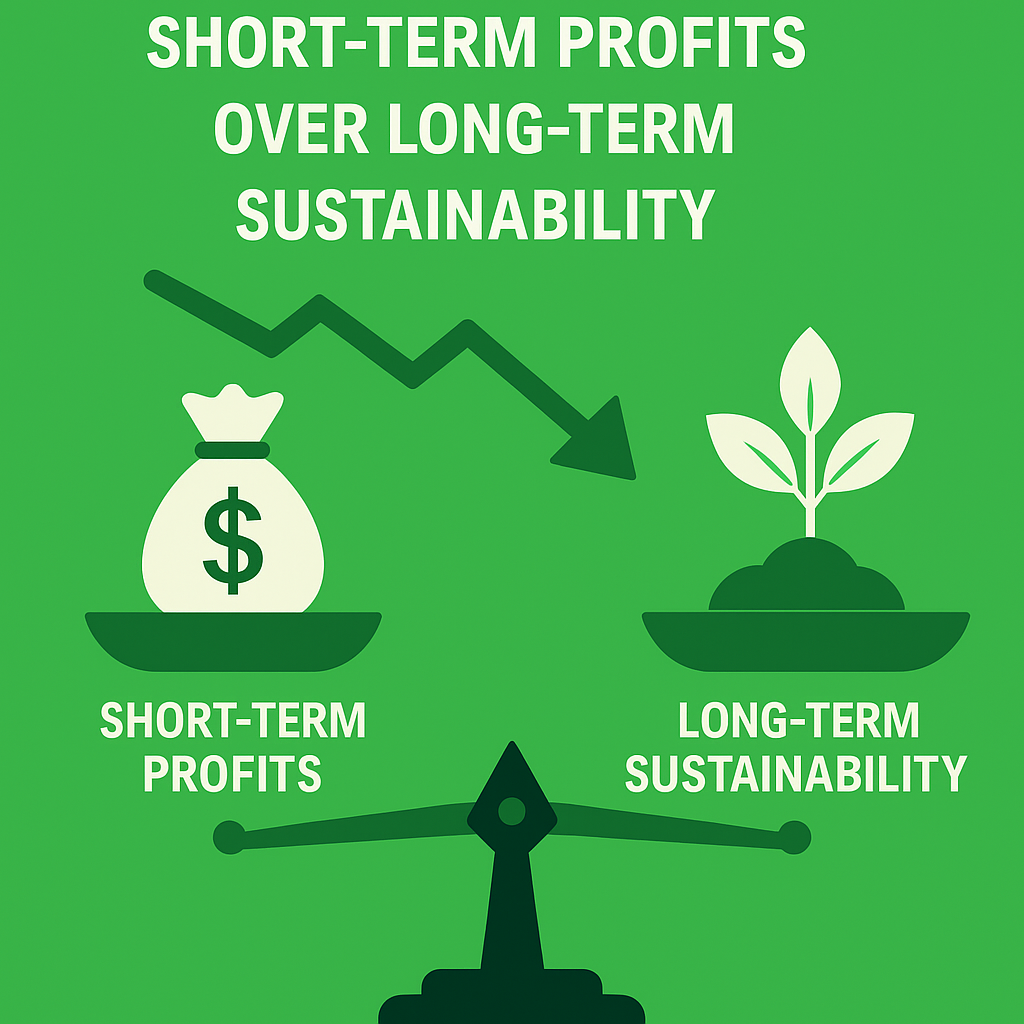This post is also available in:
Bahasa Malaysia
In business, few things are more tempting than chasing quick wins. For small business owners especially, the pressure to cover overheads, meet payroll, and satisfy investors often leads to decisions that maximize immediate profits. While short-term gains may look good on the surface, prioritizing them at the expense of long-term sustainability can quietly set a company on the path to decline.

Why Short-Term Thinking is Risky
Short-term profit chasing usually shows up as:
- Cutting corners on product or service quality to save costs.
- Delaying staff training or underinvesting in employees.
- Ignoring compliance or regulatory changes until it’s too late.
- Neglecting innovation and only focusing on “what sells today.”
These approaches may bring a temporary boost in revenue or lower costs, but they erode customer trust, staff morale, and the ability to adapt in the long run. For small businesses, once trust and reputation are damaged, rebuilding them is often more expensive than the initial savings.
Building for Long-Term Sustainability
Long-term sustainability doesn’t mean sacrificing profits—it means aligning profits with resilience. Here are practical steps small businesses can take:
1. Invest in People
Employees are the backbone of any SME. Training, fair compensation, and opportunities for growth foster loyalty and reduce turnover. A skilled, motivated team is an asset that keeps delivering value.
2. Focus on Customer Relationships
Instead of just selling, build trust. Offer consistent quality, personalized service, and transparency. A loyal customer base not only ensures repeat business but also acts as your most effective marketing channel.
3. Embrace Technology Wisely
Digital transformation is no longer optional. Cloud accounting, payroll automation, and e-Invoicing solutions not only improve efficiency but also keep your business compliant and adaptable to changing regulations.
4. Plan Beyond the Next Quarter
Set clear long-term goals: whether it’s expanding your customer base, introducing new services, or ensuring succession planning. Break these into smaller milestones, but don’t lose sight of the bigger picture.
5. Stay Compliant and Future-Ready
In Malaysia, evolving statutory requirements like e-Invoicing, EPF, and SST expansions mean businesses must be proactive, not reactive. Staying ahead of these changes safeguards you against penalties and disruption.
6. Balance Profit with Purpose
Consumers today are increasingly mindful of sustainability—whether environmental, social, or ethical. Even small businesses can stand out by adopting sustainable practices that resonate with their communities.
The Takeaway
For small businesses, survival and growth come not from squeezing every ringgit of profit today, but from building a foundation that ensures relevance tomorrow. Long-term sustainability is about making choices that may not always deliver immediate results but secure the future of your business.
Short-term profit may win the battle, but long-term sustainability wins the war.